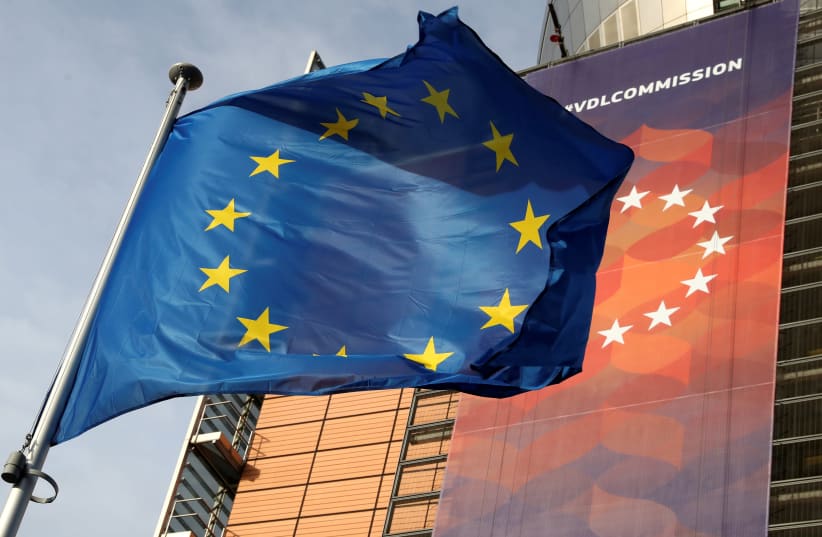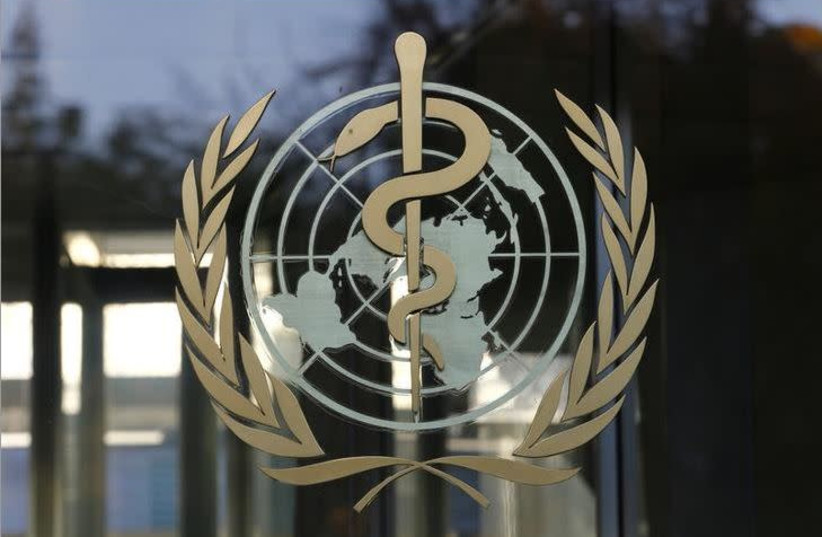Belgium announced the first detected case of the newB.1.1.529 variant of COVID-19 inside the country on Friday afternoon, making it the first confirmed case in continental Europe.
Meanwhile, the head of the Madrid-based United Nations' tourism body said on Friday that countries need to decide swiftly on applying travel restrictions linked to the new B.1.1.529 variant of COVID-19 and make such rules uniform.
UN World Tourism Organisation Secretary-General Zurab Pololikashvili spoke to Reuters shortly before the World Health Organisation (WHO) cautioned against hasty travel restrictions as it would take a few weeks to understand the variant's impact.
"It depends on WHO recommendations, but my recommendation will be to take decisions today, not after one week, because if it continues to spread as we are expecting then it will be late and will make no sense to apply restrictions," he said.
He pointed out that countries need to follow WHO recommendations in drawing up coordinated travel rules and harmonised safety and hygiene protocols, and stressed Europe should set an example and impose uniform rules to avoid confusing tourists.
"Traditionally it is the most visited continent worldwide, and it is most ready with vaccination numbers and sanitary infrastructure," he added, pointing to the European Union's COVID green pass as a successful example of a joint policy.
Fear of contagion and restrictions on movement triggered a 74% contraction in global tourism arrivals in 2020, according to UNWTO data, generating losses of $1.3 trillion in export revenues.
The industry had hoped the rollout of vaccines would unleash a quick recovery this year but the recent surge in cases across Europe has prompted several nations to bring back tough restrictions, dampening that optimism in the run-up to Christmas.
"Of course the damage is huge because we are talking about the period where there would be a big influx of tourists," Pololikashvili said.
Worldwide, a quarter of countries have travel restrictions in place and borders in some 21% of destinations are completely closed to tourism, according to the UNWTO.
European countries are beginning to take measures in response to the new COVID-19 variant, B.1.1.529, discovered in South Africa, including instituting travel bans and restrictions.
According to a German public health official, there is so far no indication that the new variant is anywhere in Europe.
But according to UK Health Minister Sajid Javid, it was highly likely that B.1.1.529 has now spread beyond South Africa and Botswana and into other countries.
"The sequence of this variant, currently called B.1.1.529, was first uploaded by Hong Kong from a case of someone traveling from South Africa," Javid told lawmakers.
"The UK was the first country to identify the potential threat of this new variant and to alert international partners. Further cases have been identified in South Africa and in Botswana, and it is highly likely that it has now spread to other countries."
The World Health Organization is convening an experts' meeting from Geneva at midday (1100 GMT) on Friday to assess the new COVID-19 variant B.1.1.529 amid growing concern, WHO spokesperson Christian Lindmeier said.
"WHO is convening a meeting ... to better understand the timeline for studies that are under way and to determine if this variant should be designated as a variant of interest or variant of concern," he said.
Nearly 100 sequences of the variant have been reported, and early analysis shows it has "a large number of mutations" requiring further study, Lindmeier said. The WHO had no comment for now on travel restrictions imposed by some authorities on southern African countries linked to the variant, he added.
"We don't know very much about this yet. What we do know is that this variant has a large number of mutations. And the concern is when you have so many mutations it can have an impact on how the virus behaves," said Maria van Kerkhove, an epidemiologist and WHO technical lead on COVID-19.
"This is one to watch, I would say we have concern. But I think you would want us to have concern," she told viewers of an event on social media on Thursday.
The United Kingdom put in place a ban on flights from South Africa, Botswana, Lesotho, Eswatini, Zimbabwe and Namibia from midday on Friday.
The move sparked blowback from South Africa, whose foreign ministry said the decision "seems to have been rushed," as even the WHO has yet to advise on the next steps.
The WHO spokesperson said the organization had no comment for now on nations imposing travel restrictions on southern African countries linked to the new variant.
Defending the ban, the UK Health Security Agency said that the variant has a spike protein that was dramatically different to the one in the original coronavirus that COVID-19 vaccines are based on.
"As scientists have described, (this is) the most significant variant they've encountered to date in their research," UK Transportation Secretary Grant Shapps told Sky News.
Germany will declare South Africa a virus variant area, a health ministry source said.
The decision, which will come into effect from Friday night, will mean airlines will be allowed to fly only Germans to Germany from South Africa, according to the source. Returning Germans, even those who are vaccinated, will then have to spend 14 days in quarantine.
"This newly discovered variant worries us. That is why we are acting pro-actively and early here," Health Minister Jens Spahn said. "The last thing we need now is a new variant being introduced that causes even more problems."
He added that the coronavirus situation is more serious now than at any other time in the pandemic so far.
The European Union also aims to stop air travel from the southern African region amid rising concern about a new variant, EU Commission chief Ursula von der Leyen said in a tweet on Friday.
The executive Commission will recommend that all 27 member states implement the measure and hopes for the European Council to give the green light as soon as possible, an EU official added.
"The Commission will propose, in close coordination with Member States, to activate the emergency brake to stop air travel from the southern African region due to the variant of concern B.1.1.529," she said.
Decisions of the European Council, which represents member states, do not have to be taken by ministers but can also be signed off by the country's ambassadors in Brussels.
Italy announced a new travel ban, barring anyone who had been to South Africa, Lesotho, Botswana, Zimbabwe, Namibia, Mozambique and Eswatini in the last two weeks.
The Czech Republic also announced a travel ban from South Africa and some other African nations.
The ban, which will take effect on Saturday, applies for third country citizens who spent more than 12 hours in the past two weeks in South Africa, Namibia, Lesotho, Eswatini, Zimbabwe, Botswana, Mozambique and Zambia, Foreign Minister Jakub Kulhanek said on Twitter.
The Dutch government also decided to temporarily halt air traffic from southern Africa starting at noon.
Health Minister Hugo de Jonge said in a statement the ban would apply to all countries in southern Africa, and that travelers currently en route would be required to quarantine upon arrival at Schiphol Airport.
France announced it would suspend all travel from South Africa for 48 hours and said recent arrivals from there will need to be tested.
Croatia will restrict the travel rules from several countries due to the new variant, Interior Minister Davor Bozinovic told reporters on Friday.
"We will ban arrivals from some countries or impose a quarantine of 14 days with obligatory testing," he said.
He said the measure, which refers to the arrivals from South Africa, Botswana, Eswatini, Lesotho, Zimbabwe, Namibia and Hong Kong, would be formally taken later on Friday.
Denmark then announced on Friday afternoon that they will be banning all non-essential travel to South Africa and other African countries to prevent the spread of the new variant.
Bahrain banned entry to travelers from South Africa and five southern African nations, the state news agency BNA reported.
The decision excluded Bahraini citizens and those with Bahraini residency visa holders.
India issued an advisory to all states to test and screen international travelers from South Africa and other "at risk" countries after easing some of its travel restrictions earlier this month. Singapore's health ministry said it would also restrict arrivals from South Africa and countries nearby as a precaution.
Japan also tightened border controls for visitors from South Africa and five other African countries, the Jiji news service reported. Its foreign ministry did not immediately respond to a Reuters request for comment.
Taiwan said travelers from "high-risk" southern African countries will have to go into quarantine.
New Zealand Prime Minister Jacinda Ardern said the country was well prepared for the new variant, days after saying it would reopen its borders to fully vaccinated international travelers from April 30.
The Africa Centres for Disease Control and Prevention said it strongly discouraged travel bans on countries that had reported the variant.
"We have observed that imposing bans on travelers from countries where a new variant is reported has not yielded a meaningful outcome. Rather implementing public health and social measures should be prioritized," it said in a statement.

